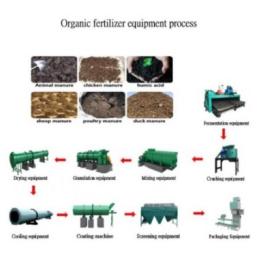Composting machine manufacturer
Choosing the right composting machine manufacturer is essential. These manufacturers specialize in developing advanced composting machines that facilitate the transformation of organic waste into valuable compost.
Types of Composting Machines:
In-Vessel Composting Machines:
In-vessel composting machines are designed for controlled composting in enclosed systems. They typically consist of large containers or vessels where organic waste is placed for decomposition. These machines provide precise control over temperature, moisture, and aeration, resulting in faster composting and higher-quality end products.
Windrow Composting Machines:
Windrow composting machines are used for large-scale composting operations. They are designed to turn and mix organic waste materials in long, horizontal piles known as windrows. These machines help maintain proper aeration and moisture levels within the windrows, promoting efficient decomposition and uniform composting.
Batch Composting Machines:
Batch composting machines are ideal for small to medium-scale composting. They allow the loading of a specific batch of organic waste into a dedicated composting unit. The waste is then closely monitored and managed to ensure optimal conditions for decomposition. Once the batch is fully composted, the machine is emptied, and a new batch can be started.
Vermicomposting Machines:
Vermicomposting machines utilize earthworms to decompose organic waste. These machines provide a controlled environment for worms to break down the waste into nutrient-rich vermicompost. They are particularly effective for processing kitchen scraps and other organic materials that are suitable for worm digestion.
Applications of Composting Machines:
Agriculture and Farming:
Composting machines play a crucial role in the agricultural and farming sectors. The resulting compost is utilized as a natural fertilizer, enriching soil health and improving crop yields. Farmers use composting machines to process various organic waste materials, including crop residues, animal manure, and agricultural by-products.
Municipal and Industrial Waste Management:
Composting machines are employed in municipal waste management systems to divert organic waste from landfills. These machines efficiently process food waste, yard trimmings, and other organic materials, reducing waste volume and producing compost that can be used in landscaping, horticulture, and land rehabilitation projects.
Commercial Composting Facilities:
Composting machine manufacturers cater to the needs of commercial composting facilities, which handle substantial volumes of organic waste. These facilities process organic waste from restaurants, grocery stores, food processing plants, and other sources. Composting machines ensure efficient decomposition and produce high-quality compost for various applications.
Greenhouse and Nursery Operations:
Greenhouse and nursery operators utilize composting machines to recycle plant waste, such as prunings, clippings, and potting media. The resulting compost improves soil structure, enhances moisture retention, and provides essential nutrients for healthy plant growth. It offers a sustainable alternative to synthetic fertilizers and helps maintain a closed-loop system within the horticulture industry.
Conclusion:
Composting machine manufacturers play a vital role in advancing sustainable waste management practices. By offering a range of composting machines tailored to specific needs, these manufacturers enable efficient organic waste processing and the production of high-quality compost. Composting machines find applications in agriculture, waste management, commercial composting, and greenhouse operations. By choosing a reputable composting machine manufacturer, industries and sectors can contribute to environmental conservation, resource recovery, and the promotion of sustainable practices.






